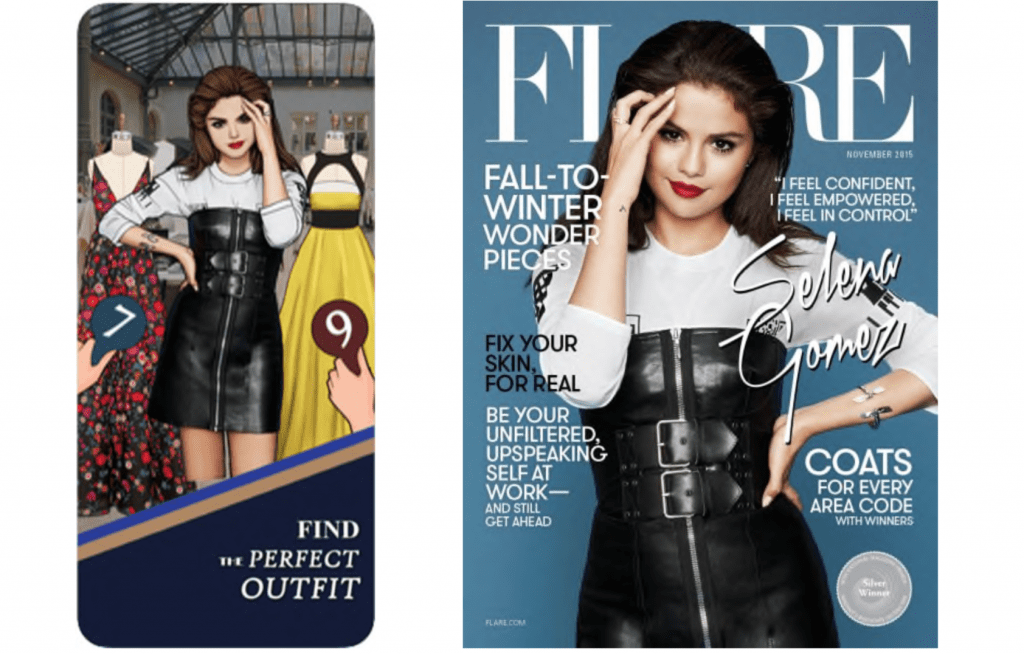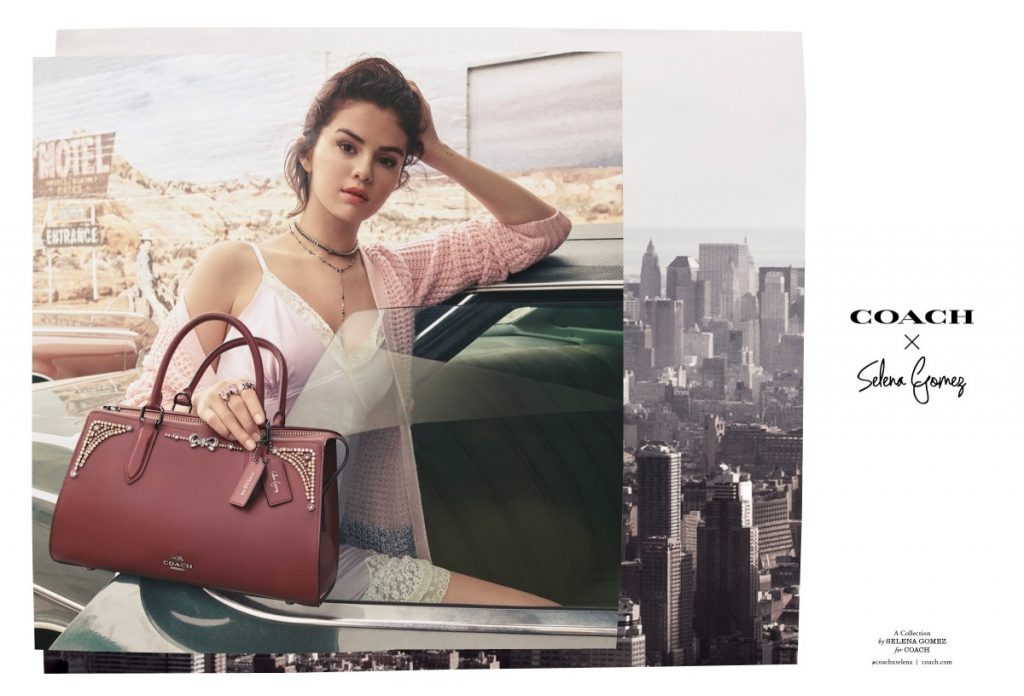Selena Gomez is taking on a mobile game developer for allegedly featuring a character that looks just like her in its “bug-riddled” styling game. In a newly-filed lawsuit, counsel for Gomez claims that given the singer’s widespread fame, her enormous social media following, and her role as a “a widely-recognized style icon,” Gomez makes an ideal figure to appear in such a game and to endorse it. The problem is, Forgame Holdings Limited allegedly never sought out the mega-star’s authorization before featuring her in its game.
According to Gomez’s complaint, which was filed in a California state court on Tuesday, Forgame US Corporation (“Forgame”) and a handful of related U.S. and Chinese-headquartered defendants created and developed “Clothes Forever Styling Game,” a mobile-specific game that enables users to “live out all your fantasies of … designing your very own fashion brand, dressing celebrities, [and] interacting with the most beautiful models and celebrities; the likes of Kardashian, Gigi, Beyoncé, Taylor, and more will be dropping by and asking for YOUR fashion advice!”
Gomez asserts that “screenshots of the game” posted … on the Apple App Store website demonstrate that the defendants have created, developed, marketed, promoted, sold, and exploited their games and gaming activities using the images and likenesses of prominent celebrities, including [herself], Rihanna, Kendall Jenner, Gigi Hadid, Taylor Swift, and Kim Kardashian.” In terms of the use of her likeness, in particular, Gomez’s counsel points to an image that appears on the App Store website, which “blatantly rips off a popular image of Gomez taken for the fashion publication Flare.” Such use of Gomez’s image and likeness “in connection with the exploitation of the game creates the false impression that she has endorsed the game or has something to do with the game, and undoubtedly is intended to attract consumers to make use of the game,” Gomez asserts.
Not the result of a formal partnership between Gomez and the defendants, the singer claims that the of her image “came as a surprise,” as the defendants “neither sought nor secured permission from Gomez to use her image or likeness in connection with the game or the advertising or marketing thereof,” thereby, engaging in “reprehensible and constitute gross violations”of California’s right of publicity law, a state-specific legal doctrine developed to give individuals the ability to prevent others from commercially exploiting their names, images, likenesses, etc. without permission.

Gomez claims that not only did the defendants fail to seek or receive her authorization to use “any of her publicity rights” in connection with the game, itself, or their efforts to promote the game, even if they sought to license such rights, she “would [not] have consented to such use for the game, which “is currently rated a measly 3.5 stars out of 5 by users on the Apple App Store website,” and “apparently relies on the unsavory practice of luring its users to make in-game purchases in amounts as much as $99.99 to fund imaginary spending in the game and unlock features.”
Beyond the apparent issues with the game and the poor reviews that come with it, Gomez states that her “ability to exercise control over any products bearing her image or likeness is critical to the success of the personal, professional, and philanthropic opportunities she pursues,” and with that in mind, she takes “considerable care to ensure any endorsements and business opportunities she pursues meet her exacting standards and serve to advance her reputation and her career and philanthropic goals.” Endorsing this game does not fit that bill.
With the foregoing in mind, Gomez claims that the defendants have been “unjustly enriched by their ill-gotten gains or profits realized from their infringement of and conspiracy to violate Gomez’s law right of publicity. As a result, she is seeking injunctive relief to bar the defendants from further misappropriating her likeness, and has also told the court that she intends to seek an array of damages in a sum to be established at trial.
Hardly the first suit in which a celeb has called foul on right of publicity grounds in connection with a video game, Lindsay Lohan, for instance, filed suit against Take-Two Interactive Software Inc. in a New York state court in 2013, alleging that its use of characters that allegedly run afoul of her right of publicity in its “Grand Theft Auto V” game. Lohan spent 5 years facing off against the game developer, before ultimately being handed a loss in March 2018, when a 6-judge panel for the state’s court of appeals unanimously held that Take-Two Interactive’s “artistic renderings are indistinct, satirical representations of the style, look and persona of a modern, beach-going young woman… that reasonably identifiable as [Lohan].”
The court did agree with Lohan on at least one point: that a computer game character could constitute a “portrait,” holding that “in view of the proliferation of information technology and digital communication, we conclude that a graphical representation in a video game or like media may constitute a ‘portrait’ within the meaning of the Civil Rights Law,” and thereby, fall within the realm of a protectable “likeness.” Nonetheless, it ultimately found that in the case at hand, the likeness at issue consisted of “ambiguous representations [that] are nothing more than cultural comment that is not recognizable as [Lohan],” and sided with the video game-maker.
*The case is Selena Gomez v. Forgame Holdings Limited, et al, 20STCV14383 (Cal.Sup.).











